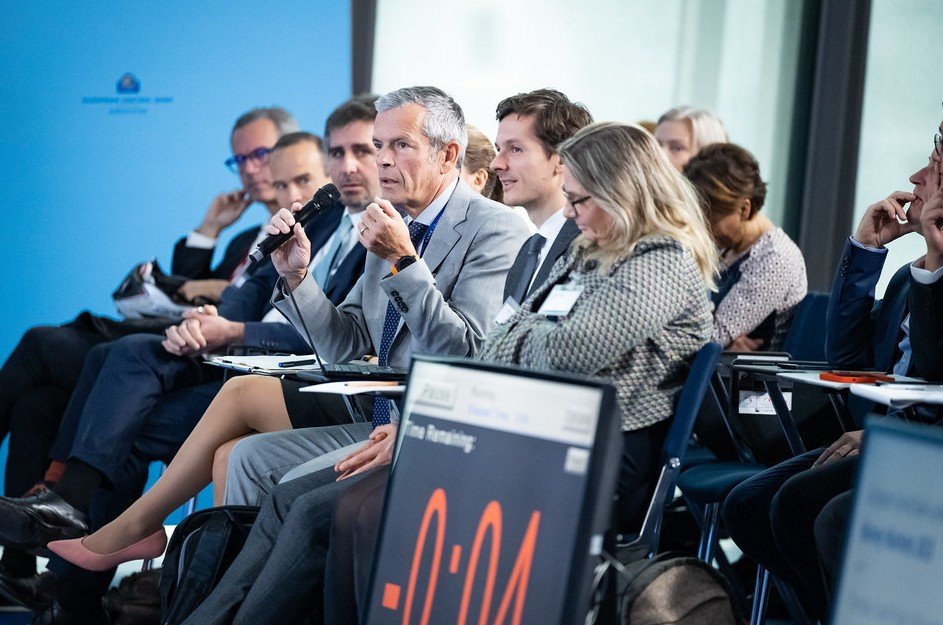The UK’s Financial Conduct Authority deputy chief executive, Sarah Pritchard, has called for stronger oversight of key tech companies that support the banking sector. This push comes amid a rise in outages and cyber threats, highlighting the need for better resilience in financial services as of November 2025.
Growing Risks from Tech Outages
Banks and financial firms rely heavily on tech giants for cloud services and other critical operations. Recent incidents show how a single glitch can disrupt entire systems.
In October 2025, a problem at Amazon’s cloud services in North Virginia affected over 2,000 companies, including Lloyds Banking Group and the London Stock Exchange. This led to widespread service interruptions, raising alarms about over-reliance on a few foreign providers.
Experts point out that such events can halt trading, block customer access to accounts, and even threaten financial stability. Pritchard stressed the importance of strong cyber controls during her recent statements.
The UK government introduced powers in early 2025 to designate critical third parties for oversight by the FCA, Prudential Regulation Authority, and Bank of England. Yet, no companies like Google or Amazon have been named so far, despite the growing threats.

Pritchard noted that the regulator is ready to step in once designations happen. She highlighted frequent reminders of resilience needs, urging all parties to focus on potential consequences.
Pritchard’s Role and Recent FCA Moves
Sarah Pritchard took on the role of FCA’s first deputy chief executive in June 2025. Her appointment reflects the watchdog’s expanding duties, including crypto regulation and international policy.
In a speech at the TISA annual conference just days ago, Pritchard discussed financial wellbeing and the need for tailored approaches. She also spoke on rebalancing risk for growth, emphasizing the chief risk officer’s role in the FCA’s five-year strategy.
Under her leadership, the FCA aims to support economic growth while driving reforms. This includes managing risks from digital finance and ensuring operational resilience.
Her call for stronger grip on tech firms aligns with broader efforts to oversee stablecoins and crypto, as seen in her expanded oversight role.
The FCA has been myth-busting common misconceptions about regulations, encouraging firms to innovate safely.
Impact on Banking and Economy
Outages and cyber attacks pose real dangers to the economy. A glitch can cost millions and erode public trust in financial systems.
Here are some key effects observed in recent years:
- Lost revenue for banks during downtime.
- Delays in payments and transactions for customers.
- Increased vulnerability to fraud and data breaches.
In 2024, global IT outages hit airlines, media, and finance, described as the biggest of their kind. Similar issues continued into 2025, with cyber attacks forcing shutdowns in monitoring agencies.
The concentration of services in a few providers creates single points of failure. Market participants have voiced concerns about reliance on handful of cloud giants.
Pritchard’s comments come as the FCA pushes for compulsory reporting of incidents and emergency planning.
To illustrate the scale of recent disruptions, consider this table of notable outages:
| Year | Incident | Affected Sectors | Estimated Impact |
|---|---|---|---|
| 2024 | Global IT outage | Airlines, finance, media | Billions in losses, massive service halts |
| 2025 | Amazon cloud glitch | Banking, stock exchanges | Over 2,000 companies disrupted |
| 2025 | Telecom vulnerabilities | Government, businesses | Emergency service blocks, potential deaths |
This data shows a pattern of escalating risks, pushing regulators to act.
Calls for Action and Future Steps
Industry leaders echo Pritchard’s concerns. They call for quick designations of critical tech firms to enforce oversight.
The Treasury’s delay in naming firms has drawn criticism, as powers remain unused nearly a year after rollout.
Pritchard said the system needs strengthening, with the FCA prepared to supervise jointly. This could involve AI services and fraud detection tools.
Experts suggest expanding threat-sharing platforms and requiring C-level reporting on cyber liabilities.
Collaboration between regulators and businesses is key to hardening defenses. This includes audit trails and better governance in embedded finance.
As digital banking grows, so does the need for resilient networks. Banks process billions of transactions daily, making secure connections vital.
Global Context and Lessons Learned
Similar issues plague other countries. In the US, regulators warn of concentration risks in crypto and fintech.
A 2024 cyber attack on a Canadian agency shut down systems monitoring illegal transactions. Such events highlight the global nature of threats.
In Australia, outages in 2025 blocked emergency calls, linking to deaths in some cases.
These examples underline the urgency for international cooperation. The UK’s approach could set a precedent for others.
Pritchard’s push ties into broader trends, like stricter compliance for banking-as-a-service after fintech failures.
By addressing these, the FCA aims to balance innovation with safety.
What do you think about the need for tougher tech oversight? Share your views in the comments and pass this article along to spark discussion.








